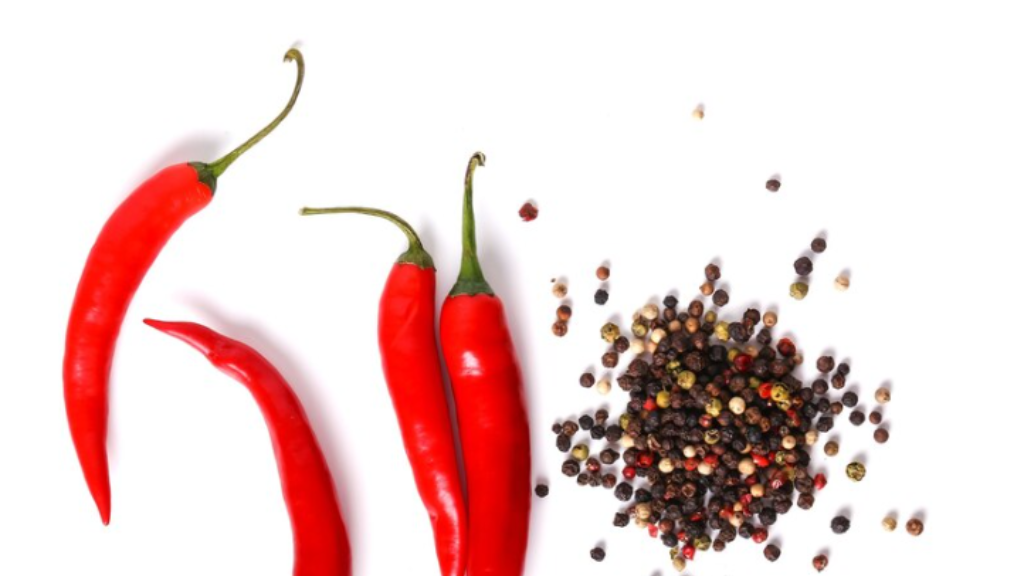Pregnancy brings about a multitude of changes, and one particularly surprising phenomenon is the craving for spicy food. If you find yourself reaching for the hot sauce or fantasizing about fiery dishes, rest assured, you are not alone.
This article delves into the intriguing reasons behind craving spicy food during pregnancy, the potential benefits of indulging in spicy foods, and important considerations to keep in mind.
Essential dos and don’ts will guide you in safely navigating your spicy desires. Prepare to enhance your pregnancy journey with a little extra heat!
Why Do Pregnant Women Crave Spicy Food?

Pregnant women frequently experience cravings for distinctive flavors, like fried or spicy foods. This phenomenon may arise from a blend of physiological changes, cultural food practices, and emotional eating patterns.
Several factors contribute to these cravings, such as changes in appetite driven by hormonal fluctuations, intensified sensory experiences, and a desire to elevate the flavors of meals, ultimately making them more enjoyable during pregnancy.
By understanding the underlying reasons for these cravings, one can manage them effectively while ensuring a balanced diet that supports both maternal health and fetal development.
Further reading: The Ultimate Healthy Pregnancy Diet Guide: From the First Trimester to Delivery
Theories and Explanations
The theories surrounding why pregnant women often crave spicy food typically focus on hormonal changes and the body’s evolving taste preferences as it adapts to pregnancy.
Several perspectives can shed light on this intriguing phenomenon, including biological, psychological, and cultural factors. From a biological standpoint, hormonal fluctuations can significantly alter taste and smell, leading to an increased sensitivity to certain flavors, including spiciness.
On the psychological side, cravings may be influenced by emotions and stress. For many, spicy foods can evoke feelings of comfort and nostalgia, offering a psychological escape during this transformative time.
Culturally, the appreciation for spicy flavors varies widely across regions. In some cultures, spices are essential components of traditional dishes, creating a sense of familiarity and connection.
These interconnected theories suggest that the enjoyment of spicy flavors during pregnancy might not simply be a fleeting desire. Instead, it reflects a complex interplay of physical, emotional, and societal influences that shape dietary choices and cravings.
Potential Benefits of Craving Spicy Food During Pregnancy

Eating spicy food during pregnancy can provide several potential benefits, such as alleviating common pregnancy symptoms and enhancing the nutritional value of meals.
For many women, including safe spices in their diet, not only adds flavor but can also assist in managing changes in appetite and improving the overall enjoyment of food during this important life phase.
Recognizing these benefits can enable expectant mothers to make informed culinary decisions while ensuring their meals remain balanced and nutritious.
Alleviating Common Pregnancy Symptoms
Spicy food can occasionally help alleviate common pregnancy symptoms, such as nausea and gastrointestinal discomfort; however, it may also lead to heartburn for some women.
For many, the initial discomforts of pregnancy, like morning sickness or bloating, can be temporarily eased by the vibrant flavors and heat found in spicier cuisines. The capsaicin in chili peppers is thought to enhance metabolism and stimulate digestion, potentially providing relief from these early signs of motherhood.
As pregnancy progresses, some women may discover that indulging in spicy dishes can unintentionally cause or worsen heartburn, which is a common issue during the later months. Therefore, while some may find benefits in consuming spicy food, it is important to pay attention to how their bodies respond to such flavors, maintaining a careful balance between relief and discomfort.
Providing Nutritional Benefits
Incorporating safe spices into a maternal diet during pregnancy can significantly enhance the nutritional value of meals by making healthy ingredients more palatable, thus encouraging better nutrient intake.
For example, ginger is widely recognized for its effectiveness in alleviating nausea, a common symptom experienced during the first trimester. Additionally, it offers antioxidant properties that can benefit overall health.
Turmeric, with its revered anti-inflammatory effects, contains curcumin, which may aid in supporting healthy digestion and boosting immunity. Cinnamon is another valuable spice; it can assist in regulating blood sugar levels, an important consideration for expectant mothers.
By thoughtfully integrating these spices into their meal planning, pregnant individuals can create flavorful dishes that not only satisfy their taste preferences but also promote fetal development and maternal well-being. Each spice contributes unique vitamins and minerals, making them essential allies in a well-rounded prenatal diet.
Further reading: Salty Food Cravings During Pregnancy: Safe Options and What to Avoid
Concerns and Risks of Eating Spicy Food During Pregnancy

Eating spicy food during pregnancy can offer certain benefits, but it’s also essential for expecting mothers to consider the important concerns and risks, especially when it comes to digestive health.
Possible Discomfort and Digestive Issues
Consuming spicy food can potentially lead to some discomfort for pregnant women, particularly in the form of digestive issues such as heartburn and gastrointestinal upset.
As the body goes through significant changes during pregnancy, certain foods may trigger heightened sensitivity. For expectant mothers, spicy dishes can worsen common complaints like acid reflux and indigestion, leading to sensations such as a burning feeling in the chest or an upset stomach. The increase in hormones, especially progesterone, relaxes the muscles in the digestive tract, which can make it easier for food to move backward.
While indulging in spicy flavors might be tempting, it is important to practice portion control and moderation to help minimize any potential discomfort. Keeping a food diary can also be a helpful tool for mothers-to-be, allowing them to identify specific triggers and ensure a more comfortable and enjoyable eating experience.
Potential Effects on the Fetus
The effects of consuming spicy food on fetal development are still under investigation, and there are concerns that excessive intake may present certain health risks. Many expectant mothers appreciate the flavor enhancement that spicy foods offer, but it is essential to maintain a balance during this significant period.
Some research indicates that high levels of spice can lead to gastrointestinal discomfort, which may indirectly influence nutrient absorption and, in turn, fetal health. Additionally, there is speculation regarding whether certain spices could potentially trigger early labor or worsen pregnancy-related issues such as heartburn.
For those managing prenatal care and maternal nutrition, it is crucial to approach spicy foods with moderation. This ensures that the enjoyment of spiciness does not overshadow the nutritional needs that are vital for a developing fetus.
Further reading: 10 Simple Steps for Starting A Healthy Lifestyle
Dos and Don’ts for Eating Spicy Food During Pregnancy
Navigating the realm of spicy food during pregnancy involves a clear understanding of the dos and don’ts. This knowledge is essential for ensuring safe consumption while also satisfying cravings and maintaining healthy eating habits.
Safe and Healthy Ways to Satisfy Cravings

There are many safe and healthy ways for expectant mothers to satisfy their cravings for spicy food during pregnancy, particularly by selecting spices that enhance flavor without compromising health.
Pregnant individuals can consider using spices like ginger, cinnamon, and turmeric, which not only bring warmth and zest to a variety of dishes but also offer numerous health benefits. Incorporating these flavorful spices can be accomplished through techniques such as toasting them to release their essential oils or creating homemade blends with safe ingredients.
For instance, dishes like vegetable stir-fries or lentil stews can easily be elevated with these spices, ensuring a delightful culinary experience.
By making informed choices, it is entirely possible to enjoy the excitement of spicy food while still prioritizing well-being and nutrition during this unique time.
Foods to Avoid

It is important for pregnant women to be aware of which foods to avoid, particularly when it comes to spicy dishes, as certain ingredients can present health risks.
Strong spices, such as chili pepper and black pepper, can often trigger heartburn or acid reflux, which are common issues during pregnancy. Additionally, high-sodium foods, including processed meats and certain sauces, may lead to water retention and increased blood pressure, making them advisable to avoid. Fermented foods, like specific types of kimchi and pickled vegetables, can also cause discomfort due to their bold flavors and acidity.
Furthermore, pregnant women should refrain from consuming unpasteurized products and raw fish to prevent any potential foodborne illnesses that could harm both the mother and the baby.
Frequently Asked Questions
Can I satisfy my cravings for spicy food during pregnancy?
Yes, you can satisfy your cravings for spicy food during pregnancy, but it's important to do so in moderation and with some precautions in mind.
What are the dos of eating spicy food during pregnancy?
Do choose spicy foods that are cooked thoroughly, as raw or undercooked foods can pose a risk of foodborne illness. Also, do make sure to stay hydrated and balance your spicy meals with plenty of water and other healthy, nutritious foods.
What are the don'ts of eating spicy food during pregnancy?
Don't consume spicy foods that are too spicy, as this can cause discomfort or heartburn. Also, avoid spicy foods that are high in sodium or contain potential allergens or food triggers.
Can spicy food have any negative effects on my pregnancy?
In general, eating spicy food in moderate amounts is safe during pregnancy. However, if you have a history of heartburn or indigestion, consuming too much spicy food may worsen these symptoms.
Are there any benefits of eating spicy food during pregnancy?
Some studies suggest that consuming spicy food during pregnancy may help reduce nausea and morning sickness. Additionally, certain spices like ginger may have anti-inflammatory and antioxidant properties that can be beneficial for both you and your baby.




